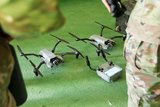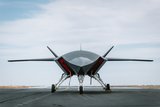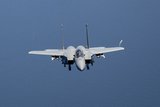Brazilian Air Force to get Condor Mk3 surveillance radar
The Brazilian Air Force (FAB) is modernising seven of its airspace surveillance radars covering the Amazon region.
The new system will include Raytheon’s Condor Mk3 monopulse secondary surveillance radar.
Matt Gilligan, VP of Raytheon Intelligence, Information and Services, said: ‘The Condor Mk3 is a highly reliable and low-maintenance system that will maintain the safety of the airspace in the Amazon for many years to come.’
The Condor Mk3 consists of an automatic power control, fully configurable software, a high-duty cycle transmitter and ADS-B.
Raytheon also supplied the legacy radars that were deployed in the early 2000s as part of the Brazilian System for the Vigilance of the Amazon (SIVAM) project.
More from Air Warfare
-
![Singapore Airshow: Red Cat ramps up portfolio development amid “key” APAC opportunities]()
Singapore Airshow: Red Cat ramps up portfolio development amid “key” APAC opportunities
In the wake of its 1,842% year-on-year revenue increase in Q4 2025, Red Cat sees mass opportunities in the Asia-Pacific region as the company eyes an ongoing production increase and market growth.
-
![India confronts widening military helicopter gap as border demands intensify]()
India confronts widening military helicopter gap as border demands intensify
India’s major helicopter programmes are under the spotlight as the country turns to global partners to replace legacy helicopters with growing urgency.
-
![Singapore Airshow 2026: Boeing’s MQ-28A targets key 2028 date as Block II ground tests begin]()
Singapore Airshow 2026: Boeing’s MQ-28A targets key 2028 date as Block II ground tests begin
The MQ-28A Ghost Bat is the most mature CCA platform currently under development, with Boeing looking to accelerate its timelines and development of the aircraft.
-
![Latin American air forces look beyond fighters to revamp transport aircraft fleets]()
Latin American air forces look beyond fighters to revamp transport aircraft fleets
The Mexican Air Force has become the first Latin American operator of the C-130J Super Hercules, but the service is not alone in acquiring a tactical airlifter in recent months.
-
![Singapore Airshow 2026: Embraer still sees future C-390 opportunities in region following RSAF snub]()
Singapore Airshow 2026: Embraer still sees future C-390 opportunities in region following RSAF snub
The company disclosed several defence contracts and upgrades for its defence aircraft at the show, including additional Super Tucano orders and a new C-390 Millennium customer, Uzbekistan.
-
![Singapore Airshow 2026: Boeing eyes $65 billion Asia-Pacific market despite Indonesia F-15 halt]()
Singapore Airshow 2026: Boeing eyes $65 billion Asia-Pacific market despite Indonesia F-15 halt
With a growing customer list and portfolio expansion in the region, the company has said that it has a strong ongoing commitment to Asia-Pacific.























